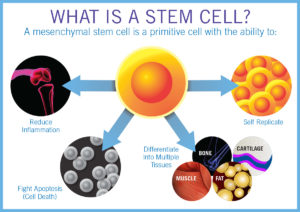 Imagine the day when a transplant recipient could consider stem cell treatment instead of taking a lifetime of immunosuppressants to prevent rejection. Of course, the threat of organ rejection is a serious concern for those who receive a kidney transplant, and immunosuppression is needed to prevent the transplant recipient’s immune system from recognizing the donated kidney as a foreign object, with different DNA. Yet, immunosuppressants are not without risk.
Imagine the day when a transplant recipient could consider stem cell treatment instead of taking a lifetime of immunosuppressants to prevent rejection. Of course, the threat of organ rejection is a serious concern for those who receive a kidney transplant, and immunosuppression is needed to prevent the transplant recipient’s immune system from recognizing the donated kidney as a foreign object, with different DNA. Yet, immunosuppressants are not without risk.
While immunosuppressants are designed to prevent the patient’s immune system from attacking the donor kidney, they can also present problems. Those problems include an increased risk for nephrotoxicity, an inability to fight off pathogens, and the increased risk for diabetes, heart disease, and even cancer.
Another issue surrounding immunosuppressants is tied to the cost of the medication. Immunosuppressant medications can cost up to $14,000 every year for the rest of a kidney recipient’s life, depending on insurance coverage. Despite these negative aspects, immunosuppressants have the most common and most effective way to prevent rejection in organ transplant recipients.
Earlier this year, California’s Stem Cell Agency (CIRM) approved funding for further research and clinical trials by involving the use of stem cells to prevent organ rejection from a donor. The hope for this new research is to discover alternatives to immunosuppressants medications.
One of those alternatives is known as stem cell treatments. Stem cell treatments involve collecting stem cells from the donor’s bone marrow with the goal of introducing them into the directed kidney transplant recipient before the transplant is performed.  Stem cell treatments allow the patient’s immune system to recognize the donor’s cells and begin to adapt prior to receiving the donor kidney.
Stem cell treatments allow the patient’s immune system to recognize the donor’s cells and begin to adapt prior to receiving the donor kidney.
Advancements in stem cell research are shinning a hopeful beam of light on the reduced risk of rejection, fewer side effects, adverse events and costs for immunosuppressants.
Risa Simon, Founder/TransplantFirst Academy / www.TransplantFirst.org

